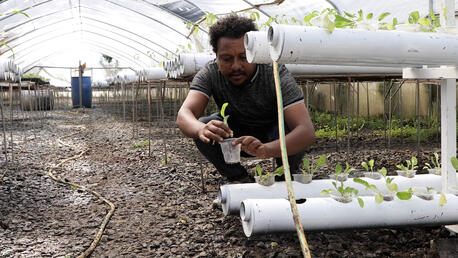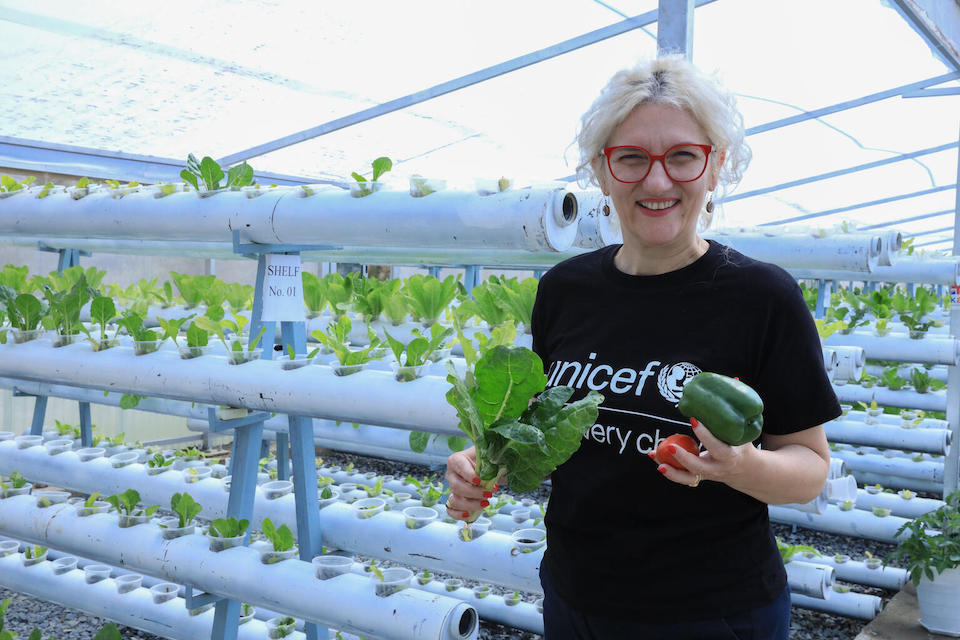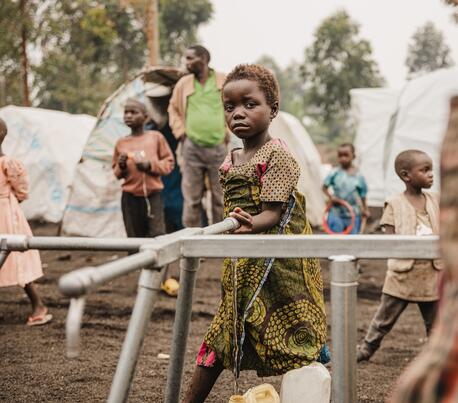
Ethiopia Tries Hydroponic Farming to Improve Access to Nutritious Food
The UNICEF-supported pilot program seeks to help address rising child malnutrition — a growing concern as the country contends with drought, food insecurity and other crises.
Innovative approach lets families grow their own vegetables without soil — little water required
UNICEF works with partners to advance local solutions to the many problems vulnerable children face — like malnutrition caused by poor diet, often due to a lack of access to affordable nutritious foods.
In Ethiopia, UNICEF has helped launch a pilot program in hydroponic vegetable farming as a way to address child malnutrition while also enhancing the resilience of local food systems.
Hydroponic farming is the practice of growing crops without soil, which saves space. And while conventional methods require rainfall and irrigation, with hydroponic farming, very little water is required — which means plantings can thrive regardless of weather or season. "We can produce year round," explains Behailu Abreha, founder and general manager of PLC, an agricultural concern in Mekelle and UNICEF's partner on the project.
Watch the video:
An innovation to help address food insecurity fueled by El Niño-driven drought
The new program is being implemented in Mekelle and in central and southern Tigray, where children and families have long suffered the impacts of violent and prolonged civil conflict.
Crop yields in Tigray, already severely depleted by drought following several failed rainy seasons, were wiped out yet again, this time by drought driven by El Niño, an increasingly damaging weather pattern associated with climate change.
"This kind of initiative will not only help prevent child malnutrition, it will enable families to grow vegetables at a low-cost," UNICEF Deputy Executive Director Ted Chaiban said after getting a firsthand look at the project during a recent visit.
Members of 50 households have received training in hydroponic farming techniques to get them started cultivating vegetables without soil.

Support UNICEF's work. Donate today.
HOW TO HELP
There are many ways to make a difference
War, famine, poverty, natural disasters — threats to the world's children keep coming. But UNICEF won't stop working to keep children healthy and safe.
UNICEF works in over 190 countries and territories — more places than any other children's organization. UNICEF has the world's largest humanitarian warehouse and, when disaster strikes, can get supplies almost anywhere within 72 hours. Constantly innovating, always advocating for a better world for children, UNICEF works to ensure that every child can grow up healthy, educated, protected and respected.
Would you like to help give all children the opportunity to reach their full potential? There are many ways to get involved.





